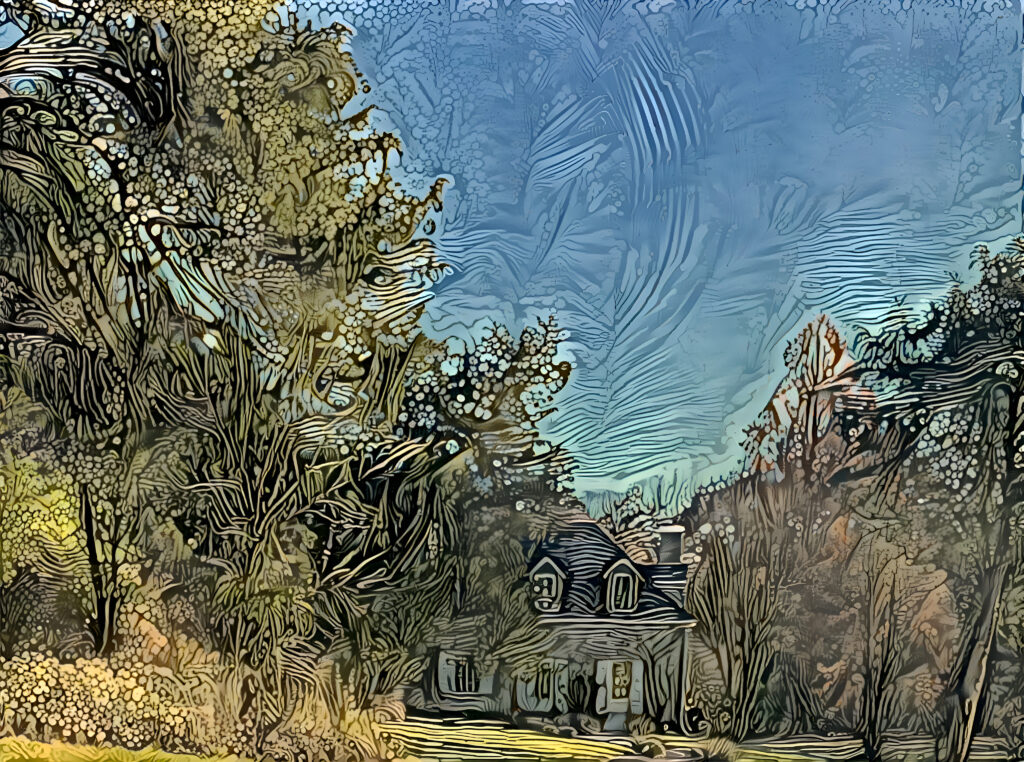This has been a time of returning.
My daughter, who has lived in Europe since going away to college, has come home. She, her new husband, and their two well-mannered British cats will share my house as they begin to build their lives in the U.S.
No gift could mean more than these days together, even during this tangled period of transition and change. Or, perhaps I cherish their presence most now because we find ourselves together in this liminal space—between school and career, Europe and America, living and dying. The chaos and creation of in-between times are often what matter most.
As I roll out onto the patio to enjoy the freshness of dawn, I’m joined by a pair of Gray Catbirds who have only recently returned to the valley, much like my daughter and her little family. Unafraid of humans, they hop about and explore the honeysuckle climbing the patio railings, pausing only occasionally to voice their cat-like calls.
Cape Cod summers filled my childhood with their presence. “Friendly catbirds,” my father called them. They seemed to delight in the games my brother and I played across the sandy lawn, watching from nearby branches with dark, attentive eyes.
These are creatures of margins—the wild, untamed edges where forest meets clearing, where bramble and vine tangle in creative disorder. Their scientific name reveals their nature: Dumetella carolinensis—”little thicket-dweller from the Carolinas.”
The coastal town of my childhood had been stripped bare in the 1800s for sheep farming. Old photographs reveal a barren landscape, emptied of all but pasture—nothing like the dense weave of blackberry, pitch pine, scrub oak, fox grape, honeysuckle, and poison ivy that sheltered my childhood adventures and provided sanctuary for these slate-gray birds.
Once human hands retreat, the land begins to reclaim itself, first through hardy thickets—plants that take root quickly in poor soil, growing without plan or permission. They bear fruit, enrich the earth with fallen leaves and the remains of small animals who lived in its shelter, and retain moisture to nourish tree saplings as they root and reach skyward. A century after the sheep vanished, thicket still dominates much of the land around our small house. The ancient forest, shaped by ocean wind and encroaching vacation homes, continues its patient return.
Now, my green Pennsylvanian valley echoes those Cape Cod margins. Fragrant walls of rambling rose, honeysuckle, bramble, and kudzu wait just beyond the mowed lawn, poised to reclaim space when human attention slips. From these borderlands, doe and fawn emerge at dusk, crickets spin the night into song, rabbits burrow hidden homes, blackberries swell sweet and dark, and catbirds call from leafy cover, safely tucked away from hunting hawks.
The thicket is a sacred place. A space of transition. More becoming than being. Evanescent.
In its creative chaos—of thorns and blooms, vigorous life and nourishing death—the true nature of existence reveals itself. Mature forests, like seemingly stable human lives, often conceal this truth. Their appearance of permanence misleads us, setting the stage for suffering when the illusion inevitably crumbles.
In a thicket, the truth stands bare: all things are in constant becoming. Though the pace may sometimes obscure it elsewhere, the signs are everywhere. A hundred-year oak disappears in a lightning strike. Companies collapse. Families cross continents. People who seemed like bedrock fall terminally ill. What once felt solid dissolves into disorder. Tears fall. Thickets grow. Paths shift. New bonds form. Children are born. From disorder, a new order emerges. Nothing endures. Everything flows.
Like the catbirds, we are dwellers of the thicket. We live within—and are—a constant becoming. In this wild edge of thorn and flower, light and shadow, all that is new takes root.
Take shelter in its wildness. Rest in its shade. Breathe in the morning scent of rambling rose and honeysuckle heavy with dew. Taste a sun-warmed blackberry, and let its sweet juice mark the moment on your tongue and lips—fleeting, perfect, and complete.

3 Responses
Absolutely beautiful Thank you
I read your posts each morning to start my day. To frame my mind. To better align with the world. Thank you!
Reminds me of a quote I recently came across, author unknown: “Gratitude is not celebration but calibration. Peace does not arrive loudly, it descends when you stop needing more. And in that stillness you may finally remember you were not meant to conquer the cosmos, only live gently within it.”